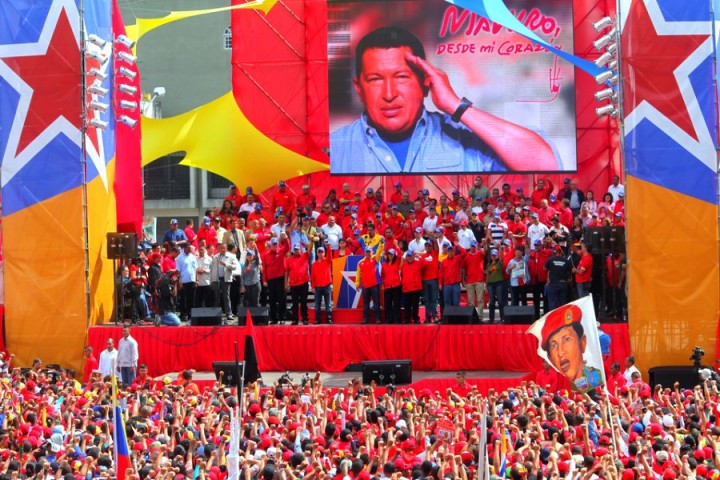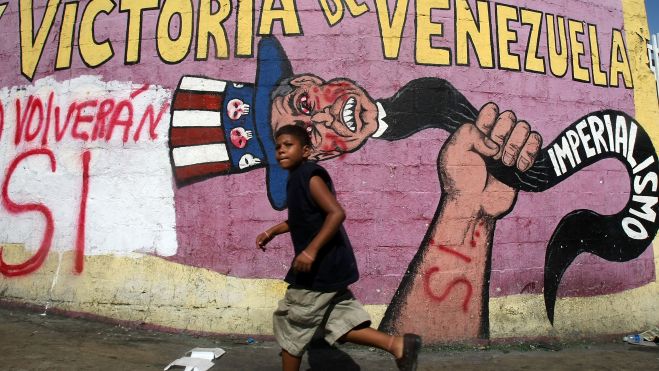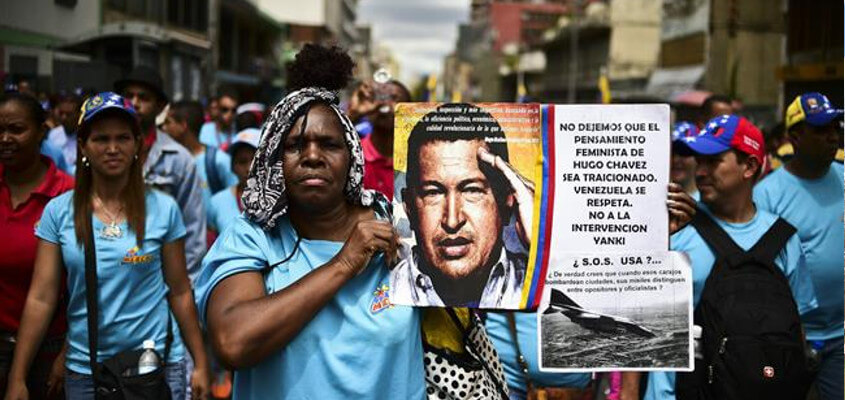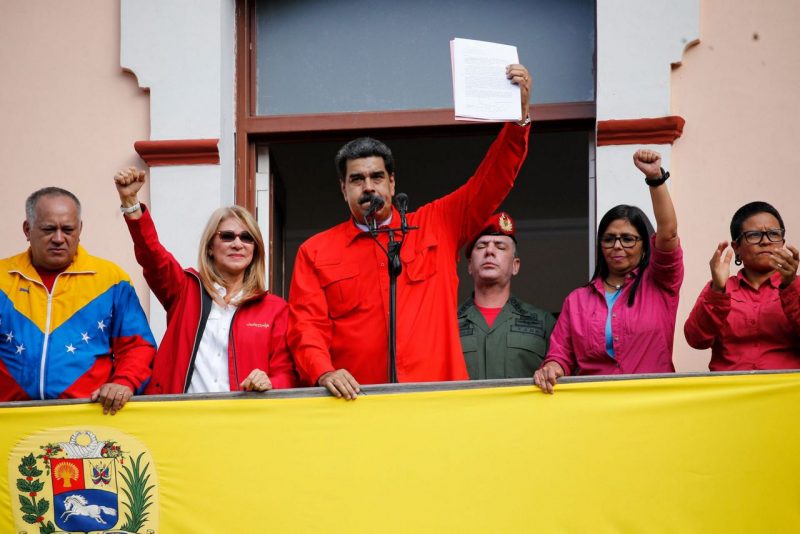
Venezuela has elections. Juan Guaido has never even been a Presidential candidate. Despite massive CIA opposition funding and interference over years as Big Oil tries to regain control of the World’s largest oil reserves, Nicolas Maduro was democratically re-elected in 2018 as President of Venezuela.
The coup now under way is illegitimate. I opposed Maduro’s move to replace the elected National Assembly. Sometimes I read back things I wrote in the past and decide I was wrong. Sometimes I think the article was right, but a bit of a potboiler.
Occasionally I am proud, and I am proud of my analysis on Venezuela written on 3 August 2017. I believe it is still valid.
Hugo Chavez’ revolutionary politics were founded on two very simple tenets:
1) People ought not to be starving in dreadful slums in the world’s most oil rich state
2) The CIA ought not to control Venezuela
Over the years, Chavez racked up real achievements in improving living standards for the poor and in providing health and education facilities. He was widely popular and both he and his successor, Nicolas Maduro, also racked up very genuine election victories. Maduro remains the democratically elected President.
But the dream went sour. In particular it fell foul of the tendency of centrally planned economies to fail to get the commodities people want onto shop shelves, and to the corruption that goes with centralisation. The latter was certainly not worse than the right wing corruption it replaced, but that does not diminish its existence.
Every revolution will always displace an existing elite who are by definition the best educated and most articulate section of the population, with most access to resources including media – and to CIA secret backing, which has continued throughout at an increasing rate.
Chavez did not solve this problem in the way Robespierre, Stalin, Trotsky or Mao would have done. He embraced democracy, let them be – and largely left their private offshore billions, and thus their power, untouched.
Inevitably the day came when economic and administrative failings cracked the solidity of support from the poor for the revolution.
The right then stepped up their opposition with a campaign led by corrupt billionaires, which the western media has failed to acknowledge has been throughout murderously violent.

The problem with revolutionary millenarianism is that its failure to achieve utopia is viewed as disaster by its proponents.
Maduro ought to have accepted that it is the nature of life that political tides ebb and flow, ceded power to the opposition gains in parliament, maintained the principles of democracy, and waited for the tide to turn back his way – taking the risk that the CIA might not give him the chance.
Instead he has resorted to a constitutional fix which dilutes democracy, a precedent which will delight the right who in the long term have most to fear from the populace.
Given the extreme violence of the opposition, I am less inclined to view arrests as unquestionably a straightforward human rights matter, than are some pro-western alleged human rights groups.
But that Maduro has stepped off the democratic path I fear is true. He has, bluntly, gone wrong, however difficult the circumstances. I condemn both the departures from human rights best practice and the attempt to use a part indirectly elected body to subvert the elected parliament.
But, even today, Venezuela is still vastly more of a democracy than Saudi Arabia, and a far greater respecter of human rights than Israel in its dreadful repression of the Palestinians.
Yet support for Israel and for Saudi Arabia are keystones of the foreign policy of those who today are incessant in their demands that we on the “left” condemn Venezuela.
The BBC has given massively more news coverage to human rights abuse in Venezuela this last month than in a score of much worse countries I could name – than a score put together.
Human rights abuse should be condemned everywhere. But it only hits the headlines when practised by a country which is on the wrong side of the neo-con agenda.
Anybody who believes that a country’s internal democracy is the determining factor in whether the West decides to move for violent regime change in that country, is a complete idiot.

Any journalist or politician who makes that claim is more likely to be a complete charlatan than a complete idiot. In recent years, possession of hydrocarbon reserves is very obviously a major factor in western regime change actions.
In Latin America over the last century, the presence of internal democracy has been much more likely to lead to external regime change than its absence, as maintenance of US imperialist hegemony has been the defining factor. That combines with oil reserves to make the current move a double whammy.
It is disheartening to see the Western “democracies” so universally supporting the coup in Venezuela. The EU in particular has leapt in to support Donald Trump in the quite ludicrous act of recognising corrupt Big Oil puppet Guaido as “President”.
The change of the EU into full neo-con mode -so starkly represented in its bold support for Francoist violence in Catalonia – is what led me to reconcile with Brexit and a Norway style relationship.
When I was in the FCO, the rule on recognition was very plain and very openly stated – the UK recognised the government which had “effective control of the territory”, whatever the attributes of that government. This is a very well established principle of international law.
There were very rare exceptions involving continuing to support ousted governments. The pre-1939 Polish government in exile was the most obvious example, though once Nazism was defeated Britain moved to recognise the Communist government actually in charge, to the fury of exiled Poles.
I was involved in the question of the continued recognition of President Kabbah of Sierra Leone during the period in which he was ousted by military coup.
But I can think of no precedent at all for recognising a President who does not have and has never had control of the country – and has never been a candidate for President. This idea of the West simply trying to impose a suitably corrupt and biddable leader is really a very startling development.

It is astonishing the MSM commentariat and political class appear to see no problem with it. It is a quite extraordinary precedent, and doubtless will lead to many new imperialist adventures.
One final thought. The right wing Government of Ecuador has been one of the first and most vocal in doing the West’s bidding.
The Ecuadorean government has been colluding with the United States over the efforts to imprison Julian Assange, and at this very time has arranged for FBI and CIA personnel in Quito to take false and malicious statements manufactured by the Ecuador government in collaboration with the CIA, about Julian Assange’s activities in the Embassy in London.
Ecuadorean government documents had already been produced out of Quito, and shown to MI6 and CIA outlets like the Guardian and New York Times, purporting to show the diplomatic appointment of Julian Assange to Moscow in December 2017.
I have believed throughout that these fake documents were most likely produced by Ecuador’s new CIA influenced government itself.
Today Ecuador, once a key part of the Bolivarian revolution, is simply a puppet of the CIA, voicing support for a US coup in Venezuela and working to produce fake testimony against Assange. I warn you firmly against giving credence to Luke Harding’s next “scoop” which will doubtless shortly emerge from this process.
Craig Murray is an author, broadcaster and human rights activist. He was British Ambassador to Uzbekistan from August 2002 to October 2004 and Rector of the University of Dundee from 2007 to 2010. https://www.craigmurray.org.uk
The 21st Century
